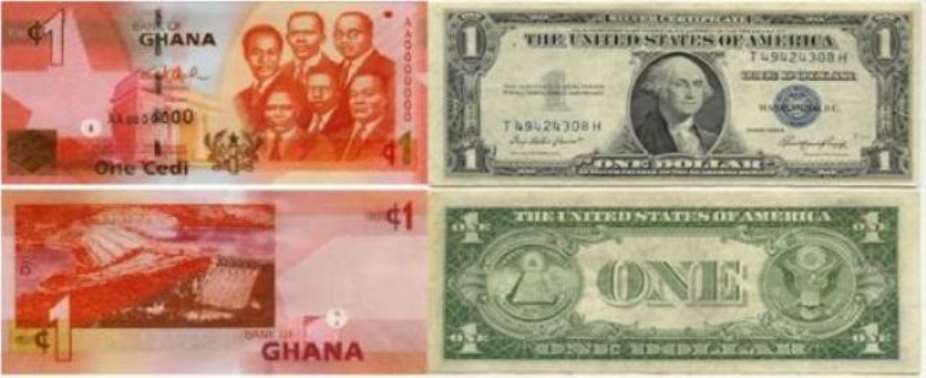It is not uncommon to see ads for houses and apartments in Accra ranging from several hundred thousand dollars to millions. These include high rise apartments in the capital, and gated communities in newly formed suburbia. Real estate appreciation is just one testament to the amount of new wealth being created each day in Ghana. To deny the creation of new wealth in Ghana is to misunderstand the fundamentals of an emerging market like Ghana. There is no question that there is money being made via an open market system. It is rather what is revealed when one focuses the lenses of national growth that is troubling. This new wealth is being generated amongst very few person (0.01%), and there is significant link to being in political power or being related to one who in politics to be party of this circle.
With the advent of the oil industry in Ghana and the opening up of other markets to Ghanaian trade, commerce is robust. Persons who are in the position to engage are taking full advantage of Ghana’s position as a darling child to the IMF and other members of the public sector. Private money is also pouring into the country through government debt instruments and private partnerships and joint ventures. Yet, most of these initiatives revolve around a few insiders in a country of 30 million souls.
When wealth is concentrated in the hands of a few, inequality and its parading issues are sure to come to the forefront. Ghana is already experiencing these problem in healthcare, education and access to social safety nets. The “no bed” syndrome is but a symptom of a system in which the rich can afford private medical care or fly abroad for treatment. There might be attempts to treat the symptom, but unless the underlying issue is solved, all such attempts would sadly be a waste. As dire as this might seem, we would be less stricken if wealth inequality was all there was to concern ourselves about.
In Ghana, wealth creation among the few is to a large extent connected to ones influence in the political arena. It is a cycle of getting rich from political connections, and the wealth buying you more political power. This is not to say that every successful businessperson in Ghana is a beneficiary of political favours. It is but an interpretation of the qualitative data that shows these links. Matters relating to awarding contracts and tax relief are all considered in this analysis. History has taught us that it bodes ill when any country connects political power to economic power and rests it in the hands of a few. This is especially true for a developing country. When the hungry and the sick lack a voice, the situation becomes nearly untenable.
The situation is further complicated when the traditional voices for the socioeconomic wellbeing of the Ghanaian people is silent. The Nkrumaist front of Ghanaian politics is in disarray, and hence has failed to live up to its promises to the people of Ghana. Kwame Nkrumah was building an industrially sound nation keeping in mind the need for the social wellbeing of the masses. Today, groups that tout his heritage are fragmented and nearly irrelevant in modern Ghanaian politics by their own acts. Yet, there is hope for a new breed of socially conscious Nkrumaists who can present the timeless message of Nkrumaism as it applies to a 21st century developing country like Ghana.
Ghana is in no position to have the vast economic inequality present in some countries today and its accompanying oligarchy. It would be ruinous for any hope of building a country that “defends the course of freedom and of right.” The time for action on such issues is now. The lull and sleep must end. The mirage of wealth must be cleared. True and sustainable growth of all must be the key. A key to which all, from Bawku to Cape Three Points, can sing God Bless Our Homeland Ghana.





 Dumsor must stop vigil part 2: We’ll choose how we demonstrate and who to partne...
Dumsor must stop vigil part 2: We’ll choose how we demonstrate and who to partne...
 2024 elections: NDC stands on the side of morality, truth; NPP isn't an option —...
2024 elections: NDC stands on the side of morality, truth; NPP isn't an option —...
 Akufo-Addo has moved Ghana from 'Beyond Aid' to ‘Beyond Borrowing’ — Haruna Idri...
Akufo-Addo has moved Ghana from 'Beyond Aid' to ‘Beyond Borrowing’ — Haruna Idri...
 Train crash: NDC is full of evil mindset; driver who 'deliberately' parked the c...
Train crash: NDC is full of evil mindset; driver who 'deliberately' parked the c...
 Dumsor: Energy Minister must be fired; it’s becoming unbearable — IES
Dumsor: Energy Minister must be fired; it’s becoming unbearable — IES
 #DUMSORMUSTSTOP: IMANI responds to Yvonne Nelson's call for a joint vigil
#DUMSORMUSTSTOP: IMANI responds to Yvonne Nelson's call for a joint vigil
 'Obiara b3didi' — Manhyia South NPP Chairman fights for resourcing of NPP grassr...
'Obiara b3didi' — Manhyia South NPP Chairman fights for resourcing of NPP grassr...
 Dumsor: This thing is becoming unbecoming, collapsing our business — Nana Ofori ...
Dumsor: This thing is becoming unbecoming, collapsing our business — Nana Ofori ...
 Dumsor: It'll be no more by the end of April — Gideon Boako assure Ghanaians
Dumsor: It'll be no more by the end of April — Gideon Boako assure Ghanaians
 "I can now see clearly with my two eyes, thanks to the generosity of Afenyo-Mark...
"I can now see clearly with my two eyes, thanks to the generosity of Afenyo-Mark...
